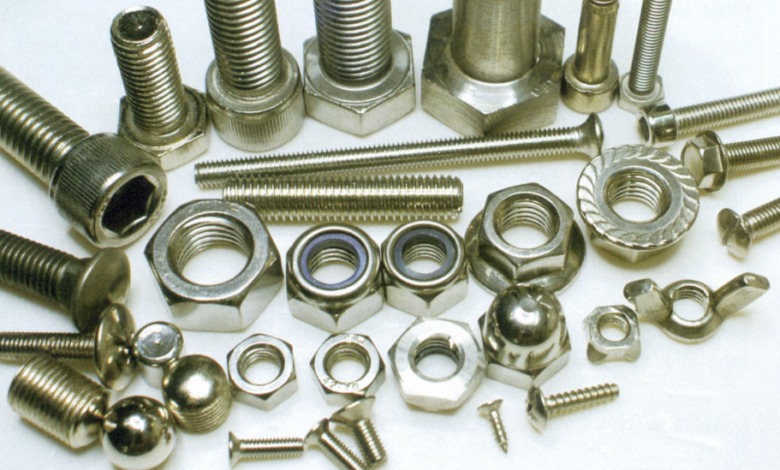Reliable Solutions from a Nuts Manufacturer

Introduction to the Industry
The industrial fastener market plays a crucial role in numerous sectors, including construction, automotive, electronics, aerospace, and manufacturing. Among the various components, nuts are vital in securing materials, machinery, and structural parts. The demand for high-quality, durable, and precisely engineered nuts has led to an increase in the significance of choosing the right nuts manufacturer.
In today’s competitive market, manufacturers must not only meet the technical requirements but also comply with international standards and offer customized solutions. Whether you need standard hex nuts or specialized locking nuts, working with a reliable nuts manufacturer ensures your projects maintain integrity, safety, and performance.
What Does a Nuts Manufacturer Do?
A nuts manufacturer designs, produces, and supplies nuts in various materials, sizes, and configurations. These nuts are used in combination with bolts or screws to hold multiple components together securely. From stainless steel and brass to titanium and alloy steel, manufacturers cater to a wide variety of industrial applications.
The manufacturing process often includes:
- Raw material selection
- Hot and cold forging
- Thread rolling
- Surface treatment (zinc plating, galvanizing, etc.)
- Quality inspection and packaging
Advanced facilities use automated machinery, CNC technology, and precision tools to produce consistent, high-quality products.
Why Choose a Reputable Nuts Manufacturer?
Choosing the right nuts manufacturer can significantly impact the quality of your final product. A reputable supplier offers not just durable fasteners but also technical support, timely delivery, and certification for international compliance.
Here are a few reasons why partnering with the right manufacturer is essential:
Quality Assurance
Manufacturers that prioritize quality assurance have in-house testing facilities to check for tensile strength, hardness, corrosion resistance, and thread accuracy. They adhere to international standards such as ISO, DIN, ANSI, or JIS, ensuring the nuts you receive meet stringent specifications.
Customization Capabilities
In many industries, off-the-shelf fasteners may not be suitable for specific applications. A reliable nuts manufacturer offers customization based on size, coating, material, and design. Whether you need a small batch of titanium locknuts or a bulk order of stainless steel flange nuts, they can accommodate custom requests efficiently.
Supply Chain Efficiency
A good manufacturer understands the importance of timely deliveries. With optimized logistics and warehousing systems, they ensure consistent inventory levels, shorter lead times, and real-time order tracking. This ensures your production lines run smoothly without delays.
Cost-Effective Solutions
A quality-focused yet competitively priced manufacturer nuts manufacturer balances affordability with reliability. By sourcing raw materials directly and using automated processes, they reduce production costs, offering cost-effective solutions without compromising performance.
See also: Importance of Social Media for Business Startups:
Types of Nuts Produced
A professional nuts manufacturer typically offers a wide range of nuts for various industrial uses:
- Hex Nuts: Commonly used in construction and machinery.
- Flange Nuts: Ideal for distributing pressure over a larger surface.
- Lock Nuts: Designed to resist loosening due to vibration.
- Wing Nuts: Used in applications where frequent adjustments are necessary.
- Cap Nuts: Offer aesthetic finishing and protection from exposed threads.
- Square Nuts: Used in channel or groove fittings.
- T-Nuts: Commonly found in woodworking and modular systems.
Each type is available in different coatings and materials to meet the requirements of harsh environments or specific load conditions.
Materials Used in Nut Manufacturing
The performance of a nut depends greatly on its material composition. A professional nuts manufacturer offers multiple material options:
- Stainless Steel: Resistant to corrosion and used in marine or food-grade applications.
- Carbon Steel: Cost-effective with moderate strength, used in general applications.
- Brass: Good for decorative or electrical components due to its conductivity.
- Titanium: Lightweight and strong, suitable for aerospace and medical uses.
- Nylon Inserts (in locknuts): Provide vibration resistance in machinery.
Surface finishes like zinc coating, black oxide, hot-dip galvanizing, and PTFE coating improve durability and resistance to environmental damage.
Industries Served by Nuts Manufacturers
Nuts are essential across numerous sectors. A top-tier nuts manufacturer supplies to industries such as:
- Construction: Used in structural steel frameworks, bridges, and buildings.
- Automotive: Crucial in engine components, chassis, and suspension systems.
- Aerospace: Lightweight and precision-engineered nuts used in aircraft structures.
- Oil and Gas: Requires corrosion-resistant fasteners for extreme conditions.
- Electronics: Used in securing delicate circuit boards and enclosures.
- Renewable Energy: Supports wind turbines and solar panel installations.
How to Select the Right Nuts Manufacturer
With numerous suppliers in the market, selecting the right partner is a strategic decision. Here are some key factors to consider:
- Certifications: Look for compliance with international standards (ISO 9001, ASTM, etc.).
- Experience: Established manufacturers with years of experience ensure reliability.
- Customization Support: Ability to handle special designs or coatings.
- Production Capacity: Should be scalable to meet small and large volume orders.
- Customer Reviews: Check client feedback or case studies for performance history.
- After-Sales Service: Includes support for returns, complaints, or technical queries.
Challenges Faced by the Industry
The nuts manufacturing industry is not without its challenges. Rising raw material costs, global shipping issues, and fluctuating demand due to economic conditions can impact production and pricing. However, a resilient nuts manufacturer invests in technology, local sourcing, and flexible operations to overcome these obstacles and meet client expectations.
Future Trends in Nut Manufacturing
Technological advancements are transforming the fastener industry. Some future trends include:
- Smart Fasteners: Equipped with sensors for monitoring tension and vibrations.
- Eco-Friendly Coatings: Environmentally sustainable surface treatments.
- 3D Printing: Rapid prototyping of custom nut designs.
- Digital Integration: Use of ERP systems and AI for smarter inventory management.
Leading manufacturers are adopting these innovations to stay ahead in a competitive market.
Conclusion
Finding a dependable nuts manufacturer is essential for businesses that require precision, durability, and timely delivery of fasteners. Whether you’re operating in construction, automotive, or electronics, the quality of your fasteners affects the overall integrity of your products and services.
By choosing a manufacturer that offers customized solutions, maintains international standards, and emphasizes quality control, you ensure long-term success in your operations. The right nuts manufacturer is more than a supplier — they’re a partner in your production process.







